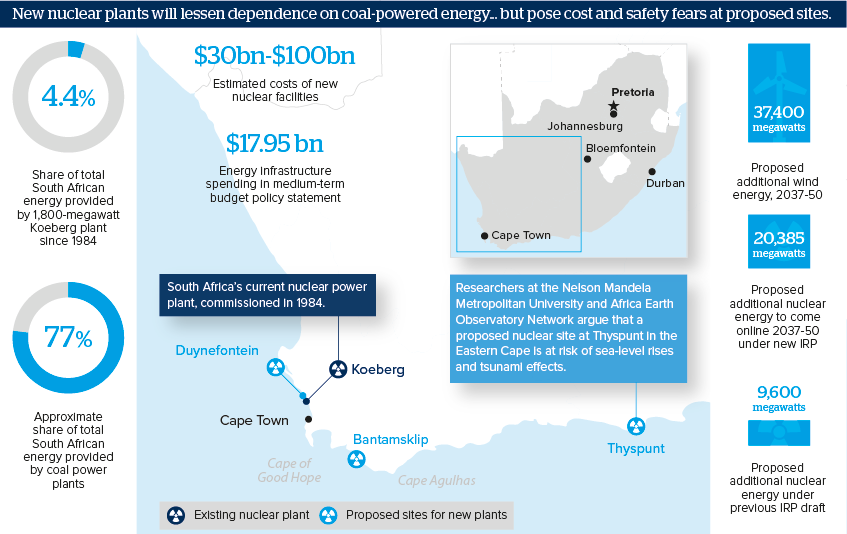South Africa's nuclear plan appears a costly luxury
Despite improving energy capacity, the government remains committed to commissioning new nuclear power plants by 2037
Source: Department of Energy, South Africa; Nelson Mandela Metropolitan University and director of the Africa Earth Observatory Network; Statistics South Africa; World Bank; National Treasury, Republic of South Africa; Eskom
Outlook
South Africa avoided a ratings downgrade in 2016. This was partly attributable to fiscal consolidation measures announced by the finance minister in late October, in addition to the subsequent scaling-back of a new nuclear power programme originally scheduled for a 2023 rollout.
While the nuclear plant construction timeline was delayed, the minister of energy has stated that the government remains committed to new facilities by 2037 as part of a revised Integrated Resource Plan (IRP) and Integrated Energy Plan (IEP) (due for completion next year). On December 7, an expert panel appointed by the minister claimed their recommendations on renewable energy capacity -- and a lower base case scenario -- were ignored.
Impacts
- Reducing the budget deficit could become unachievable if the revised IRP -- complete with nuclear energy requirements -- is pursued.
- President Jacob Zuma's opponents within the ANC may try to use the nuclear plans as a lightning rod to oust him.
- Civil society groups will protest over the questionable safety of the proposed new nuclear facilities.
See also
- South African energy shift will prove difficult - Dec 4, 2018
- South African downgrades will raise regional risks - May 26, 2017
- South African nuclear ruling could undermine Zuma - Apr 26, 2017
- South Africa’s Zuma could face early exit - Apr 3, 2017
- South African budget may partly ease downgrade fears - Feb 27, 2017
- South Africa's needless nuclear plan may be ruinous - Sep 29, 2016
- More graphic analysis
